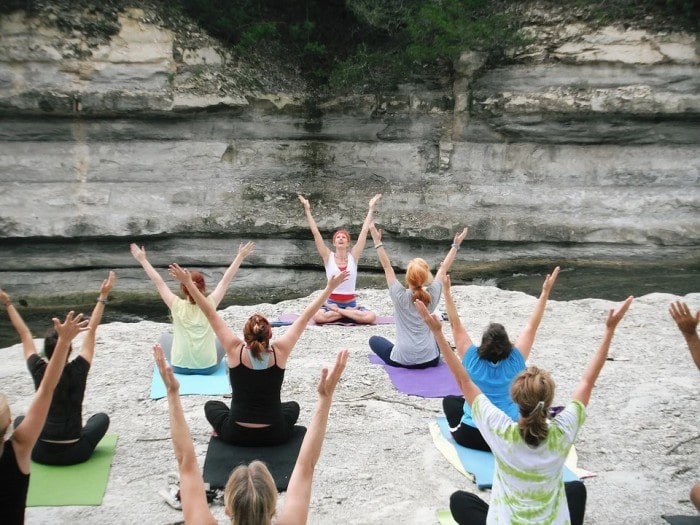
Managing your emotions in early recovery can be a challenge. Long term substance abuse can significantly alter your brain chemistry, making it difficult to handle emotions in sobriety. This can be overwhelming and your mind may be running a hundred miles an hour. You may be eager to get your life together quickly, but realize this is an ongoing journey. It will take time for things to calm down emotionally and physically, so try to find some peace of mind in your recovery.
Yoga is a great way to obtain the relief and serenity you are looking for. The relaxation techniques incorporated in yoga can help bring ease to the mind and body. Here are some benefits of practicing yoga in addiction recovery.
Physical Health
Some yoga videos may look easy, but it is more challenging than it appears. With a huge variety of exercises and positions, you will find a level you are comfortable with. Your body will strengthen over time as you progress through the different levels of yoga. The physical demands of yoga can help you lose weight, gain muscle and increase your flexibility. Improving your physical health will also increase dopamine levels, which most likely decreased during active addiction.
Mental Health
Studies have shown that yoga can reduce the symptoms of depression and anxiety. Practicing on regular basis has been known to significantly increase serotonin levels. Yoga has also been proven to decrease monoamine oxidase and cortisol. This has been related to greater levels of happiness and a more relaxed state of mind.
Spiritual Health
In active addiction you may feel a void in your life that you are attempting to fill with drugs and alcohol. Being connected spiritually can be a very powerful way to fill this void. Through yoga you can reach a heightened consciousness, which allows you to connect with your higher self. Once you are in-tune with your own spirit, you will naturally unite with a higher power.
Being in the Present Moment
Staying sober for the rest of your life can sound like a daunting task. This is why alcoholics and addicts are taught in the AA program to focus on “One Day at a Time.” It’s much easier to stay sober when you’re in the moment and focus on today. Yoga also teaches you to be in the present moment by focusing on your breathing and sustaining a position. When you are in the present, you are able to let go of the past and future. This allows you to live a happier life and move forward in your recovery.
Removes Emotional Pain
Drugs and alcohol are commonly used in order to cope with emotional pain and life stressors. Unfortunately, self-medicating with substances is easily misunderstood as a solution. Yoga is a great alternative approach to relax the mind and body. Through various yoga positions you will be able to facilitate an emotional release. Releasing toxic emotions from the mind and body is part of the healing process. As you stretch and breathe in yoga poses you will free any trapped emotional pain.
Pain Management
When someone in recovery uses prescription painkillers, it may lead into an addiction. Yoga is a great alternative method of dealing with chronic pain. Through mind-body practices, it’s possible to reduce pain perception. Yoga also raises endorphin levels, which are the body’s natural painkillers. Using a holistic approach to manage pain will dramatically reduce the chances of a relapse.
Building a Routine
Establishing a routine will help build some structure and rhythm into your daily life. Replace the time you once filled with drinking or using drugs with a healthy activity such as yoga. Having this activity in your daily schedule helps you stay productive and focused on your recovery. Using your free time wisely will increase your chances of long term sobriety.
Conclusion
Simply practicing yoga will help reduce the chance of a relapse, but it is even more effective when combined with a proper substance abuse aftercare program. The components in an aftercare program can include counseling, therapy and support groups. When you leave treatment you should continue seeing a therapist and build a sober support system. It’s important to have someone you can open up to and people around who will hold you accountable to stay sober.
Yoga is a great component to add to your aftercare program and it’s very simple to get started. You don’t need much space and there is no equipment that you need to purchase. While some people who practice yoga will buy a mat, it is not required. All that’s required is for you to be willing and ready to live your best life.
